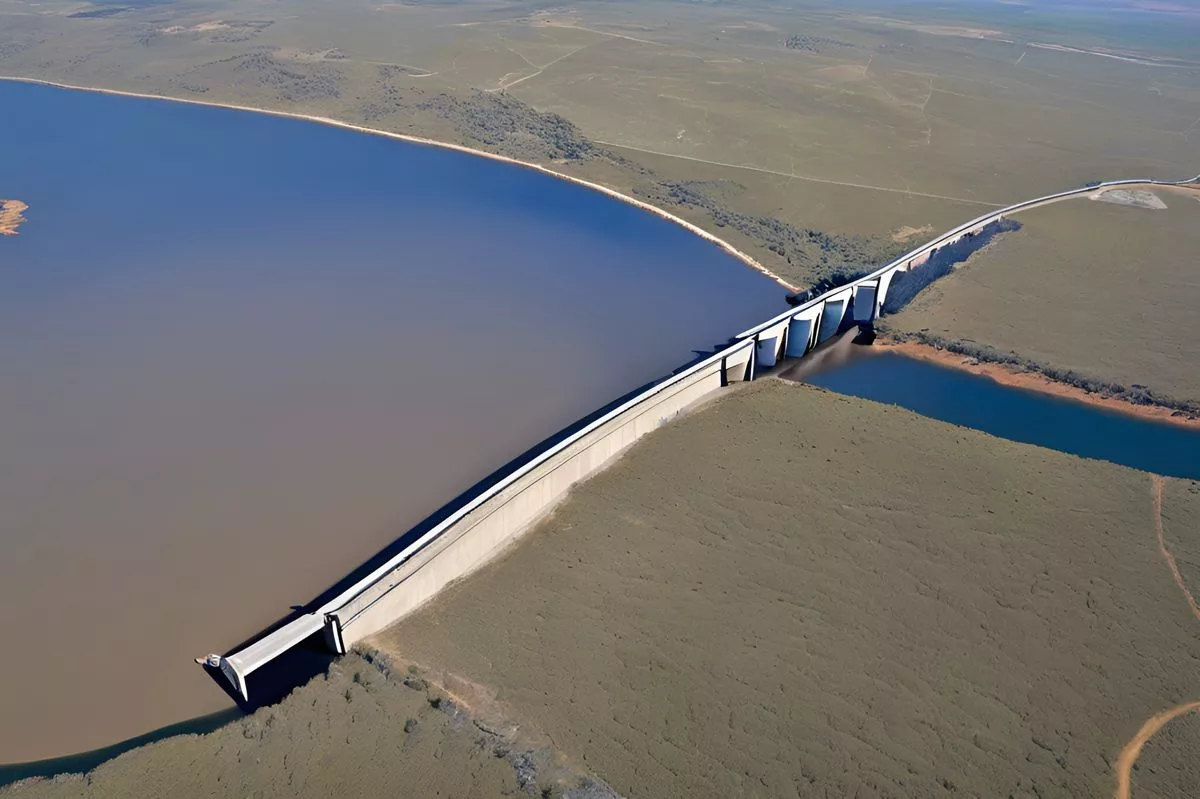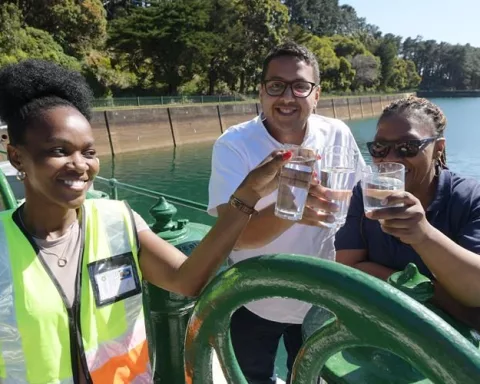Population growth and climate change have put a strain on Cape Town’s water resources, but the city is tackling the challenge head-on with its innovative New Water Programme. The programme includes eradicating invasive species, groundwater harvesting, water reuse, infrastructure upkeep, and potential desalination plans. The city is also diversifying its water supply through the Faure New Water Scheme and wastewater treatment technologies. These strategies serve as a model for other cities facing similar challenges. Despite temporary disruptions, Cape Town’s efforts offer hope for a water-secure future.
How is Cape Town addressing water sustainability amidst population growth?
Cape Town is tackling the challenge of water sustainability through its innovative New Water Programme, which includes eradicating invasive species, groundwater harvesting, water reuse, infrastructure upkeep, and potential desalination plans. The city is also diversifying its water supply through the Faure New Water Scheme and wastewater treatment technologies, while setting its sights on a seawater reverse osmosis plant. These strategies serve as an exemplary model for other cities grappling with similar challenges.
Addressing the Water Challenge Amidst Population Surge
Cape Town, South Africa’s shining gem, is rapidly evolving its approach to ensure sustainable water supply amidst population explosion and climate change. The Census 2022 reveals a 27.6% growth in Cape Town’s populace since 2011, resulting in a current population of 4,772,846. This exponential growth has necessitated an urgent, creative, and sustainable approach to water management from the city’s governing bodies, given the strain on the existing water facilities.
In Cape Town, the narrative of drought is a frequent one, prompting officials to lean on the innovative New Water Programme (NWP). This groundbreaking initiative is crafted to augment Cape Town’s water resources and targets to supplement 300 million litres of water daily from new sources by 2030. The NWP’s plan of action is multi-pronged and includes the eradication of invasive species, groundwater harvesting, water reuse, upkeep of infrastructure, and potential desalination plans in the pipeline.
Tackling Invasive Species and Harnessing New Water Supply
The first line of action in Cape Town’s war against water insecurity is the systematic removal of alien invasive species. These uninvited intruders, consisting of various plant and tree species, guzzle over 54 billion litres of water annually. Their uncontrolled growth hampers the water flow into the Theewaterskloof Dam, a crucial water source for Cape Town and neighbouring municipalities and farms. However, the silver lining is that the invasive species eradication programme has replenished 16.1 billion litres of water in just six months, and has thus made available an additional 44 million litres of water daily.
In an attempt to fortify the city’s water supply further, the Faure New Water Scheme has been implemented. This strategy revolves around the Faure Water Treatment Plant and Reservoir, aiming to diversify and enhance the city’s drinking water supply up to a maximum capacity of 100 million litres daily. The plan includes purifying treated wastewater using a state-of-the-art water purification system, adhering to global best practices.
Cape Town’s multi-pronged strategy also includes groundwater extraction. The city plans to amplify its water supply through the utilization of subterranean water sources, which will meet national standards once filtered and treated.
Looking Towards Desalination and Wastewater Treatment
Looking forward, Cape Town is setting its sights on desalination. The proposed seawater reverse osmosis plant is expected to further diversify the city’s water supply, boasting an impressive capacity of 50-70 million litres per day. Importantly, the infrastructure for this plant has already been designed, and technical feasibility assessments have been carried out, laying the foundation for its successful establishment.
In a bid to optimize all existing resources, the city is investing in cutting-edge wastewater treatment technologies. City Councillor Zahid Badroodien, the mayoral committee member for water and sanitation, noted that currently, treated effluent is used in non-drinking water applications, such as irrigation and industrial processes. Therefore, treated wastewater represents a significant and yet underused resource.
While these innovative solutions hold promise, the road to their implementation is not without bumps. The city has recently witnessed water outages in several areas due to necessary infrastructural work. The City administration reassures that these temporary disruptions are part of the larger scheme to guarantee long-term water security. The city’s dedicated efforts to address this pressing issue, evidenced by its innovative strategies, offer hope for a future where water scarcity in Cape Town is a distant memory.
Setting an Example for Global Cities
Cape Town’s relentless pursuit to secure its water future serves as an exemplary model for other cities grappling with similar challenges. Its strategic responses highlight the importance of perceiving water security as a complex challenge requiring a comprehensive response, intertwined with technological innovation, environmental conservation, and infrastructural development. As Cape Town continues its journey towards water security, the global community observes, learns, and, hopefully, will follow its lead.
-
What is the New Water Programme in Cape Town?
The New Water Programme is Cape Town’s innovative approach to tackling the challenge of water sustainability amidst population growth and climate change. The initiative consists of eradicating invasive species, groundwater harvesting, water reuse, infrastructure upkeep, and potential desalination plans. -
How is Cape Town diversifying its water supply?
Cape Town is diversifying its water supply through the Faure New Water Scheme and wastewater treatment technologies. The Faure scheme aims to enhance the city’s drinking water supply up to a maximum capacity of 100 million litres daily, while wastewater treatment technologies aim to optimize existing resources. -
What is being done to address invasive species in Cape Town?
Cape Town is systematically removing alien invasive species that guzzle over 54 billion litres of water annually. The programme has replenished 16.1 billion litres of water in just six months, making an additional 44 million litres of water daily available. -
What are Cape Town’s plans for desalination?
Cape Town is setting its sights on a seawater reverse osmosis plant with an impressive capacity of 50-70 million litres per day. The infrastructure for this plant has already been designed, and technical feasibility assessments have been carried out, laying the foundation for its successful establishment. -
Has Cape Town faced any challenges in implementing its innovative water sustainability strategies?
Yes, Cape Town has faced temporary disruptions due to necessary infrastructural work. However, the city administration reassures that these disruptions are a part of the larger scheme to guarantee long-term water security. -
How can other cities learn from Cape Town’s innovative strategies?
Other cities can learn from Cape Town by perceiving water security as a complex challenge requiring a comprehensive response, intertwined with technological innovation, environmental conservation, and infrastructural development. By highlighting the importance of a diverse range of solutions, Cape Town serves as an exemplary model for other cities grappling with similar challenges.









